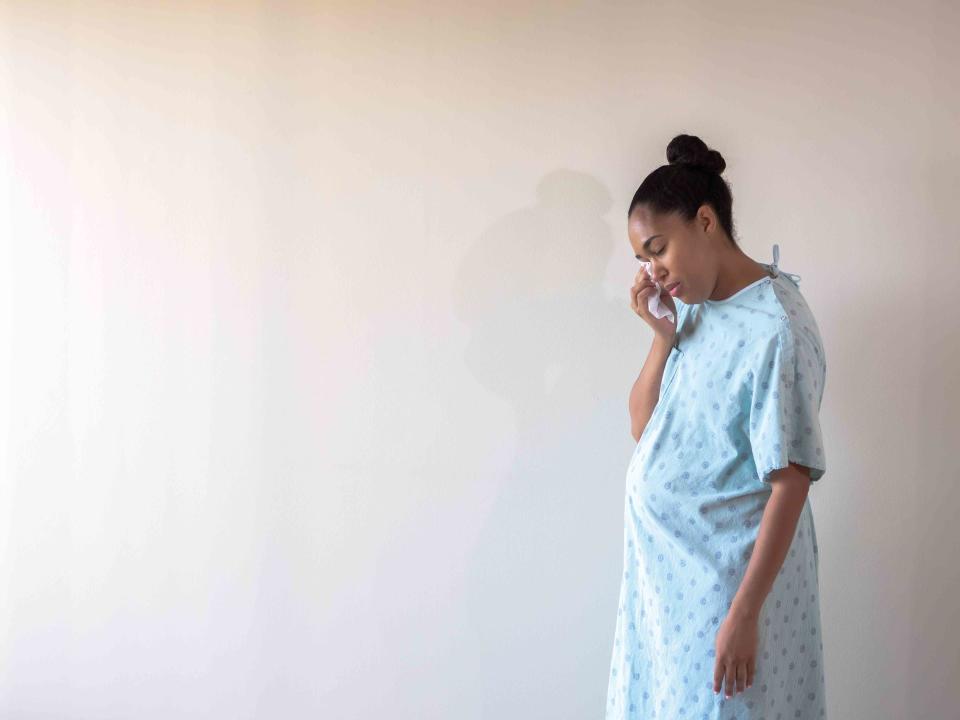Countries Around the World Are Failing Black Mothers
We wanted to find great countries around the world for Black parents to give birth. Spoiler: There are none.

Big Joe/Getty Images Plus
Maternal health directly correlates with the health and well-being of entire countries. It showcases a society's dedication to the welfare of its citizens. Yet, despite variations in geographical locations, the trend remains consistent: Black pregnant people (or parents of sub-Saharan African descent) are more likely to experience serious health issues during childbirth compared to their counterparts from other racial or ethnic backgrounds.
In the United States, deep maternal mortality disparities persist. Black pregnant patients are three times more likely to die than white patients. A study in Canada found that when it comes to serious problems during childbirth, like severe complications or health issues for the mom, it varies a lot among immigrant women depending on where they're from. Researchers looked at women's birth countries to figure out their ethnic backgrounds. They discovered that Black women were twice as likely to face these serious problems compared to other immigrant groups.
In the UK, non-white women, especially those from black African and Caribbean backgrounds, are more likely to experience serious health issues during childbirth compared to white women. This trend is similar to what we see in the number of pregnant people from different ethnic groups who tragically passed away during childbirth.
Another study looking at 10 years of birth data from Australia and Denmark found that Black women were twice as likely to have serious problems during childbirth. In China, several barriers impede Black parents' access to reproductive healthcare. These include limited reproductive health awareness, discriminatory immigration policies, dissatisfaction with local health services, and language barriers.
Even in countries renowned for their maternal healthcare, challenges persist in adequately supporting Black pregnant people. In Finland, Black women experience the highest rates of health complications during pregnancy and childbirth, alongside the poorest perinatal outcomes, underscoring the critical necessity for targeted preventive and specialized care. Similarly, in Norway, the significant influence wielded by healthcare workers in deciding access to care poses hurdles for these parents, especially when they are uninformed about their rights or feel unable to assert themselves.
Conversely, one country leads by example in safeguarding the health and safety of Black pregnant people during pregnancy and childbirth. Sweden has a healthcare system with universal access to healthcare services, providing coverage for all residents regardless of citizenship or legal status. In 2021, The Justice Unity Support Trust, or JUST Birth Network, was created to empower and improve the birthing experience of Black birthing people in Sweden. The network includes dedicated birth and postpartum doulas, childbirth educators, and inpatient cultural navigators. These professionals provide patients and their families with expert care and guidance throughout their pregnancy and birthing experience.
Admittedly, when I started writing this article, I aimed to shine a light on countries that are doing an outstanding job of caring for Black pregnant people. I knew that, regardless of where they lived, Black pregnant people were more prone to serious health complications during childbirth compared to parents from other racial or ethnic backgrounds. However, I didn't anticipate the severity of the situation. As I dove into the research, I was disheartened by the bleak picture painted in each global study. Despite this, I uncovered three key themes that are making a difference in reducing Black maternal mortality worldwide:
Early Prevention
In most studies, common pregnancy complications are driving Black maternal morbidity. In fact, preeclampsia is one of the leading causes of maternal deaths worldwide, with a disproportionate impact on Black pregnant people. More countries need to adopt early intervention and preventive measures in addressing pregnancy complications, including education and counseling for the pregnant person so they can recognize warning signs.
Cultural Competence
When examining Black maternal health, it's essential to look beyond the obvious and understand the many factors contributing to the disparities we see. This is why culturally competent care is so important. It addresses the disparities that Black pregnant people often experience. This includes things like genetics, which can make certain health problems more likely for Black pregnant people, and socio-economic factors, like income and access to healthcare, which can also play a big role.
Even their treatment within the healthcare system can be influenced by culturally competent care since discrimination and bias can lead to poorer care and outcomes. That's why having healthcare providers and even doulas who understand and respect Black parents' cultural backgrounds and needs is so important. They can advocate for their patients and ensure they get the care they deserve.
Collaboration
To drive positive change in Black maternal health outcomes, countries need to embrace a collaborative approach involving government entities, healthcare professionals, and local communities. At the governmental level, policymakers play a pivotal role in shaping healthcare policies and allocating necessary funding to bolster programs and initiatives aimed at enhancing Black parents' health outcomes.
Private healthcare organizations should take responsibility for training and educating medical professionals to address implicit biases and ensure equitable care delivery. Black parents must be actively involved in decision-making processes concerning their care, demanding their voices be heard and their preferences respected.
Related, community-based organizations serve as crucial pillars in empowering Black pregnant people to advocate for their health and that of their communities. These groups should be supported in overcoming barriers to providing essential support services such as maternal health awareness, doula care, peer support groups, engagement efforts, and access to resources like transportation and childcare.
For more Parents news, make sure to sign up for our newsletter!
Read the original article on Parents.

